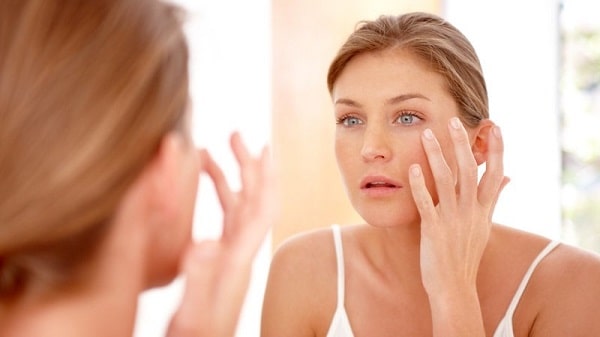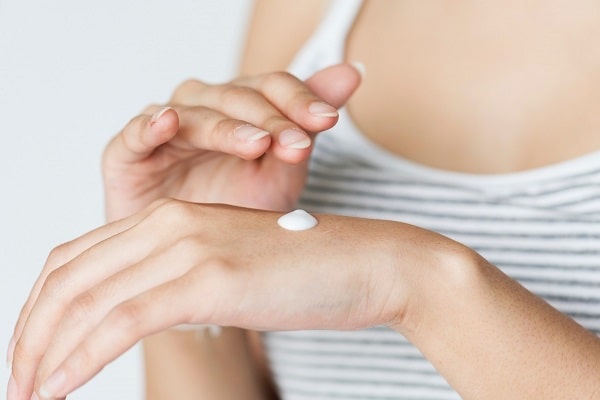As women age, their skin gets more delicate and needs special care. However, did you know many of those changes are due to menopause? In fact, women’s skin changes in way men’s doesn’t, and it’s because of hormone swings during and after menopause.

Photo credit by: Kylie Aquino (Flickr)
Luckily, if you understand why your skin is changing, it will be easier to target the issues and quickly make your skin glow again. Today we’ll cover some common issues tied to menopause that could be wreaking havoc on your skin:
According to the American Academy of Dermatology, there are many things that could turn your face red [1]. However, hot flashes are one of the most common causes.
Hot flashes are one of the signature symptoms of menopause, although they can also be caused by other conditions.
For women during menopause, hot flashes can happen anywhere from one every few weeks or days, to even dozens of times per day! They happen when the skin’s tiny blood vessels suddenly open, and the hot blood reaches the surface. This causes immediate redness and a feeling of warmth.
After an episode, your skin should return to its normal color. However, excessive flushing that happens regularly can lead to chronic redness. This redness, when it happens on the face, is also known as rosacea.
If the redness on your face doesn’t disappear after a few hours or even when using products for sensitive skin, we recommend consulting a dermatologist for a skin evaluation.
Surprisingly, menopause usually causes dry skin among women. The reason? Lack of estrogen.
This hormone promotes skin health by boosting collagen and oil production [2]. Because of that, during menopause your skin loses elasticity and gets dehydrated faster. This affects not only the skin on your face, but your entire body: your nails, skin, genitals and hair.
Constant dryness can, in turn, cause your skin to feel taut, itch and flake. Luckily, there are some easy fixes you can add to your routine.

As we already mentioned, estrogen plays a key role in our skin’s elasticity and hydration. Estrogen also jumpstarts collagen production. However, hormonal aging is still one of the less talked about causes of wrinkles and sagging skin.
As women estrogen levels dwindle, your body produces less and less collagen. On top of the aesthetic changes, namely less supple skin and more wrinkles, there are other side effects: less joint flexibility, dull hair, brittle nails and loss of bone density.
Luckily, now more than ever we have many options to offset this collagen loss, and even replenish some of it. Here’s what you can do to cope:
Yes, many women going through menopause discover they now have acne-prone skin. When you’re dealing with hot flashes and wrinkles, why does your body seem to be conspiring against you?
However, it makes sense. Teen acne starts because our bodies struggle with hormone imbalances, and that’s exactly what happens during menopause.
Menopausal acne is caused by low estrogen and higher androgen levels [3]. But many women with acne find the usual treatments for teen skin are too harsh for them.
In order to deal with acne during menopause, it’s very important to use products designed for sensitive, dry skin, without harsh chemicals.
Menopause can cause unexpected changes in your skin, especially if you’re not prepared for them! Now that you know what to look out for, you can nourish your skin and make sure you feel our best, regardless of your age.
Cheryl
July 28, 2021 at 8:06 pm
What exactly should we use for wrinkles and dry skin during menopause?